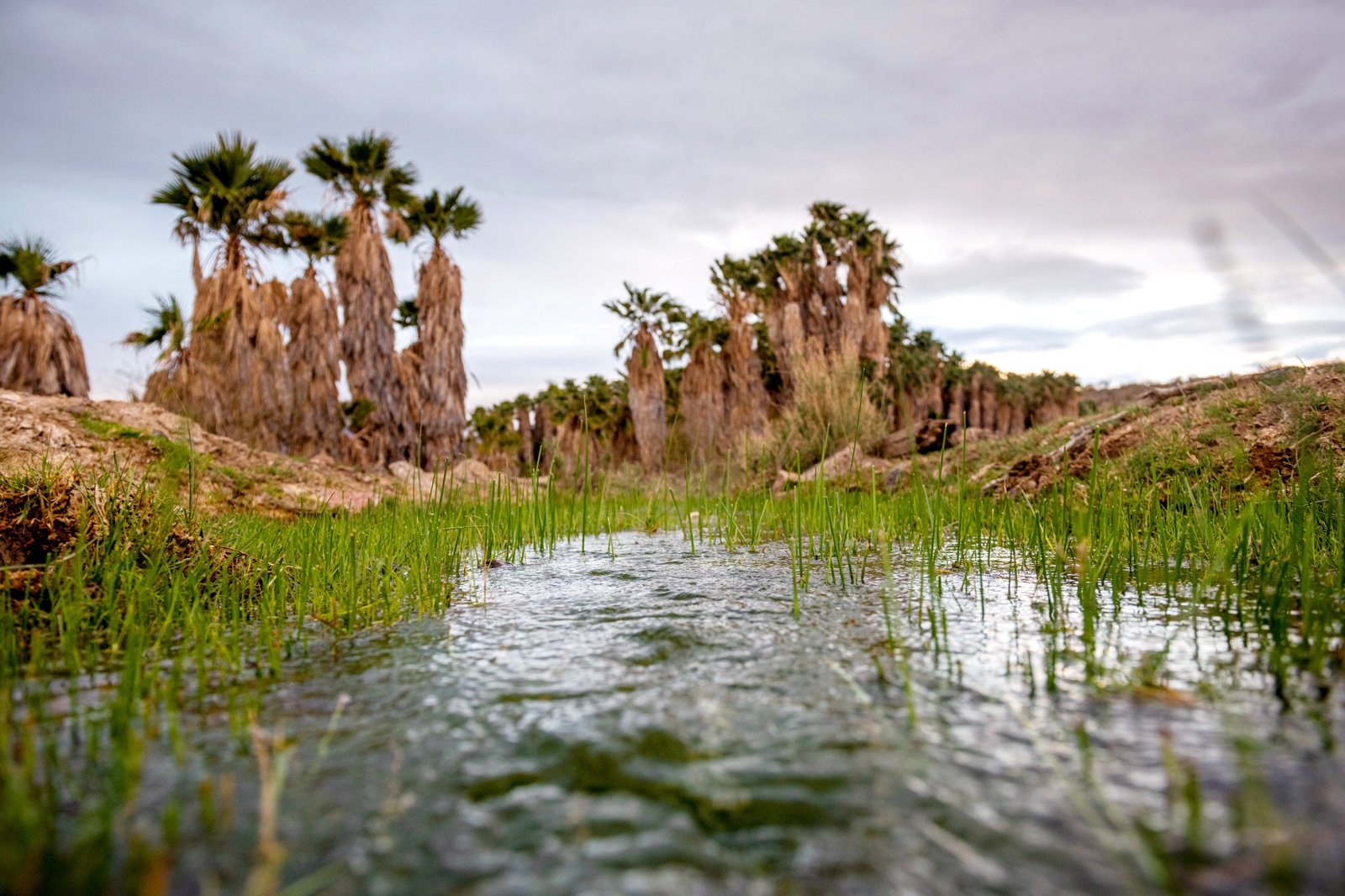arizona
Hualapai Tribe Takes Legal Stand Against Federal Lithium Mining Project Near Sacred Spring

For several years, the Hualapai Tribe has voiced serious concerns regarding a lithium exploration project near Wikieup, Arizona, managed by the U.S. Bureau of Land Management (BLM). The project permits a mining company to drill and test more than 100 sites in the area surrounding the Hualapai’s significant cultural site, Ha’Kamwe’, which is a sacred medicinal spring.
Ha’Kamwe’ plays a vital role in the tribe’s tradition, featuring prominently in their songs and stories that celebrate their connection to the land. Its historic flow and temperature are essential for its cultural uses, making the tribe’s concerns about the project particularly pressing.
In light of these concerns, the tribe submitted numerous public comments and engaged in consultations with BLM throughout the planning process for the Big Sandy Valley Lithium Exploration Project, spearheaded by Big Sandy, Inc., a subsidiary of Australian mining company Arizona Lithium. However, despite these efforts, BLM approved the project on June 6.
BLM’s approval allows the mining company to drill up to 131 exploration holes across 21 acres of public land to assess the viability of a larger lithium mining operation. Following this decision, the Hualapai Tribe filed a lawsuit against BLM, challenging the approval and its implications for their cultural resources.
The location of Ha’Kamwe’ lies within the tribe’s property, Cholla Canyon Ranch, and the boundaries of the proposal closely encircle it. The tribe’s director of cultural resources, Ka-voka Jackson, expressed their disbelief at BLM’s claim that the project would not adversely affect cultural sites.
“The tribe maintains that we are opposed to this project,” Jackson stated. “This lawsuit ensures that BLM is following the correct protocols.” The lawsuit claims that drilling activities could penetrate the aquifer that sustains the spring’s flows, potentially degrading its character and the tribe’s ability to utilize it for cultural practices.
The tribe argues that BLM violated both the National Environmental Protection Act and the National Historic Preservation Act. Ha’Kamwe’ is acknowledged as a traditional cultural property and is eligible for listing on the National Register of Historic Places. According to Earthjustice Senior Attorney Laura Berglan, who is representing the Hualapai Tribe, BLM must consider the environmental impacts of this exploration and its effects on historic properties.
Despite the tribe’s extensive engagement and the sharing of traditional Indigenous knowledge, these concerns were not adequately addressed, leading to profound frustration. Jackson elaborated on how BLM disregarded the tribe’s requests for alternative drilling methods that could minimize harm.
“BLM violated NEPA by failing to consider a middle-ground alternative,” the lawsuit contends. Although BLM has stated they conducted outreach and incorporated some changes based on tribal feedback, numerous concerns remain unaddressed.
Jackson articulated the tribe’s dissension against the mining project and remarked on the broader challenges faced by Indigenous groups in halting mining operations. “We submitted all our comments. We were ignored,” she asserted.
BLM’s environmental assessment acknowledged potential temporary disruptions but concluded that the project would not significantly impact the area. This decision contradicts the tribe’s ongoing concerns about the long-lasting effects on their spiritual and cultural practices as well as local wildlife and vegetation.
Jackson emphasized that the mining activities would disrupt ceremonial practices, posing profound challenges to maintaining their spiritual traditions. The tribe gathers native plants found in the Big Sandy Valley, which are integral to their cultural heritage.
As the drilling project progresses over the next 18 months, the Hualapai Tribe fears irreversible environmental changes. Jackson reiterated that the proposed actions jeopardize the integrity of their ancestral lands and sacred sites, particularly Ha’Kamwe’.
“If the temperature were to change, that alters the entire character of the spring,” she explained. The tribe remains dedicated to resisting this mining endeavor, viewing it as a direct threat to their heritage and future.

















